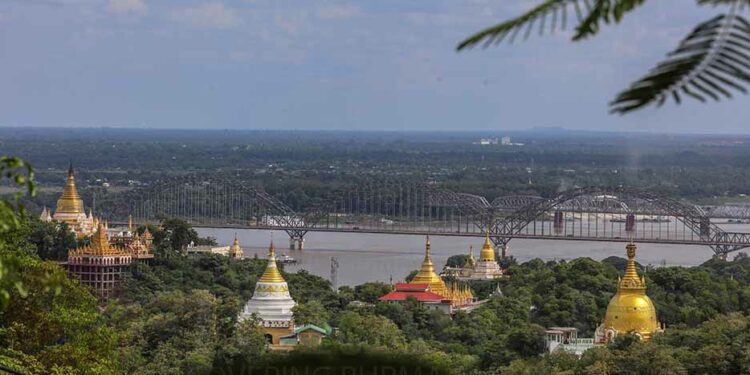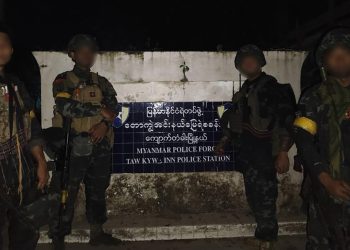YANGON—A Chinese textile group has submitted a proposal to implement an international textile manufacturing cluster project in a major town in Sagaing Region, an economic hub for Upper Myanmar, at an expected cost of more than US$370 million (493.49 billion kyats).
The Ministry of Planning, Finance and Industry (MOPFI) said China’s Jiangsu province-based Eastern Development International (Myanmar) Co. Ltd. (Dongzhan Textile Group – China) made an unsolicited proposal for the project in Sagaing city, which if accepted would be the first textile-based industrial cluster to be developed in the country.
According to the government’s investment agency, the Directorate of Investment and Company Administration (DICA), Eastern Development International (Myanmar) Co. Ltd. registered in 2018 as a manufacturer of wearing apparel. Both directors of the company are Chinese citizens and it is wholly owned by foreign citizens.
Textile manufacturing is one of the leading industries in Sagaing city, and the region is home to a number of the country’s major state-owned textile factories. Sagaing Region borders India and its economy is largely dependent on trade with the country.
The Myanmar Project Bank said the proposed project will comprise two phases at an estimated total cost of $371.40 million on 356.47 acres in Sagaing owned by No. 3 Heavy Industries Enterprise, a state-owned company. It will involve construction of a total of 17 garment related factories, an international textile-related market at a ginning factory in Sagaing, and other related infrastructures.
According to the Project Bank, construction is expected to be complete within 10 years. Phase 1 will include construction of 12 new garment-related factories, knitting fabric factories, dyeing and printing factories, down and feather factories and residential buildings for employees.
Phase 2 will include construction of five garment related factories, an embroidery factory, a carton factory, a polyester wadding factory and the international textile related market. Under the proposal, the industrial cluster would be linked with other textile factories across Sagaing Region.
U Win Aung, general manager of No. 3 Heavy Industries under MOPFI with responsibility for the project, told The Irrawaddy that the Chinese company had already carried out a preliminary feasibility study (FS) for the project.
If the project goes ahead, it will be 100-percent wholly owned by the foreign company, he said.
However, the ministry is planning to launch a Swiss Challenge to invite other interested bidders, U Win Aung added.
The Myanmar government set out new rules last August for investors looking to submit unsolicited project proposals worth more than 2 billion kyats. Under the Swiss Challenge process, an initial development proposal put forward by a company will be made public to allow qualified firms to challenge it with better terms, on the basis that they strictly adhere to the terms and conditions of the tender assessment criteria.
U Win Aung said that the proposal for the Swiss Challenge is awaiting approval from the Union level.
He said the Swiss Challenge will be launched after the Union level gives the green light.
“The process will take at least six months. We will invite all foreign and local investors who are interested to participate in it,” he added.
The Project Bank said the project is expected to create 20,000 new jobs.
Although the Chinese company made the first proposal, U Win Aung said the official will choose the most qualified one based on their financial capability and their work experience track record, among other things.
U Win Aung said the project is a part of the government’s plan for the privatization of state-owned enterprises, adding that Myanmar intends to transform from a cut, make and pack (CMP) to a freight–on-board (FOB) basis.
Under the FOB system, international buyers have to pay Myanmar’s garment factories for the full value of the completed garments as they are loaded “on board” shipping vehicles. Currently, manufacturers in Myanmar are operating under the CMP production system, in which producers have no involvement in the design and or input sourcing processes.

















